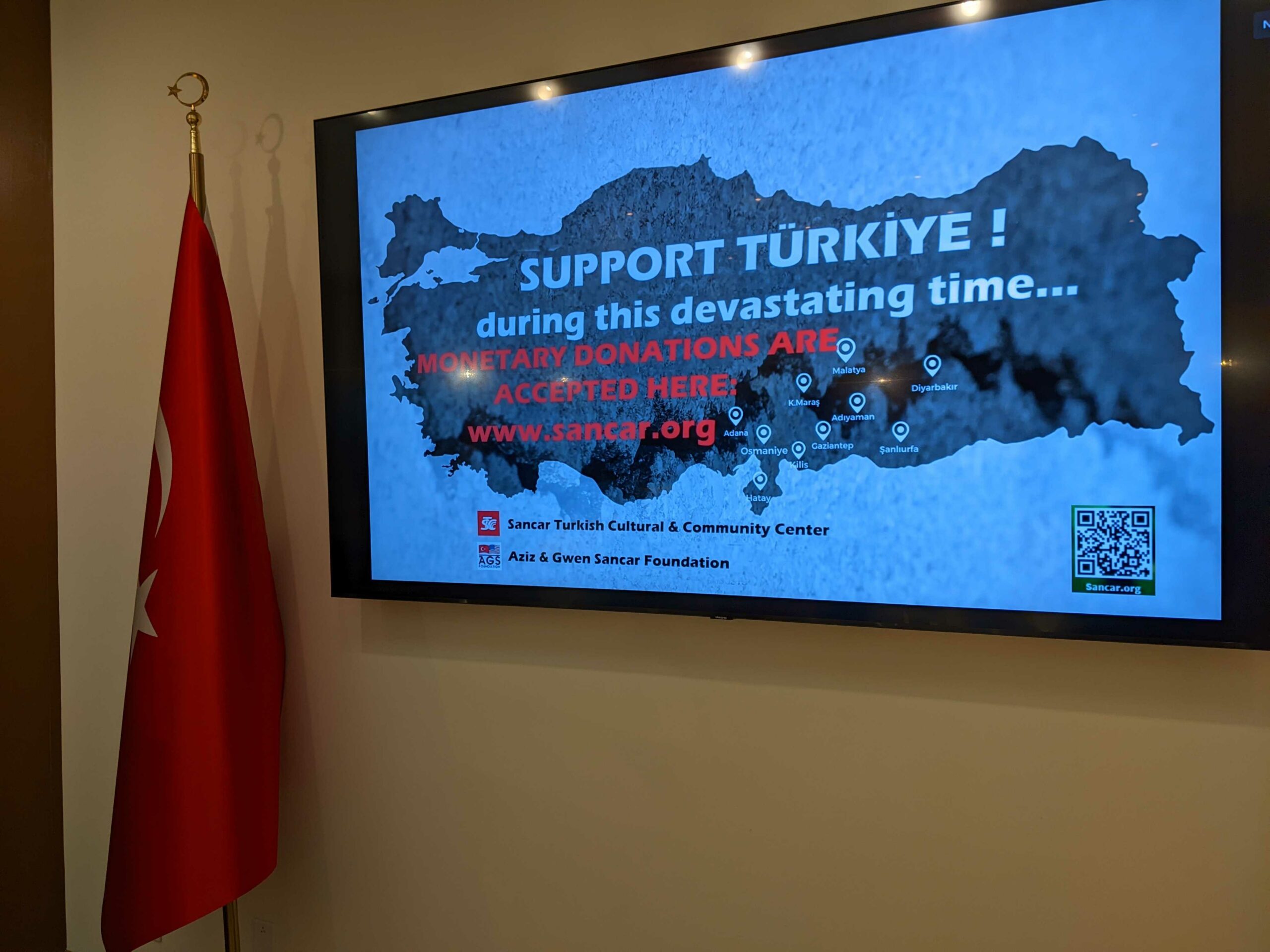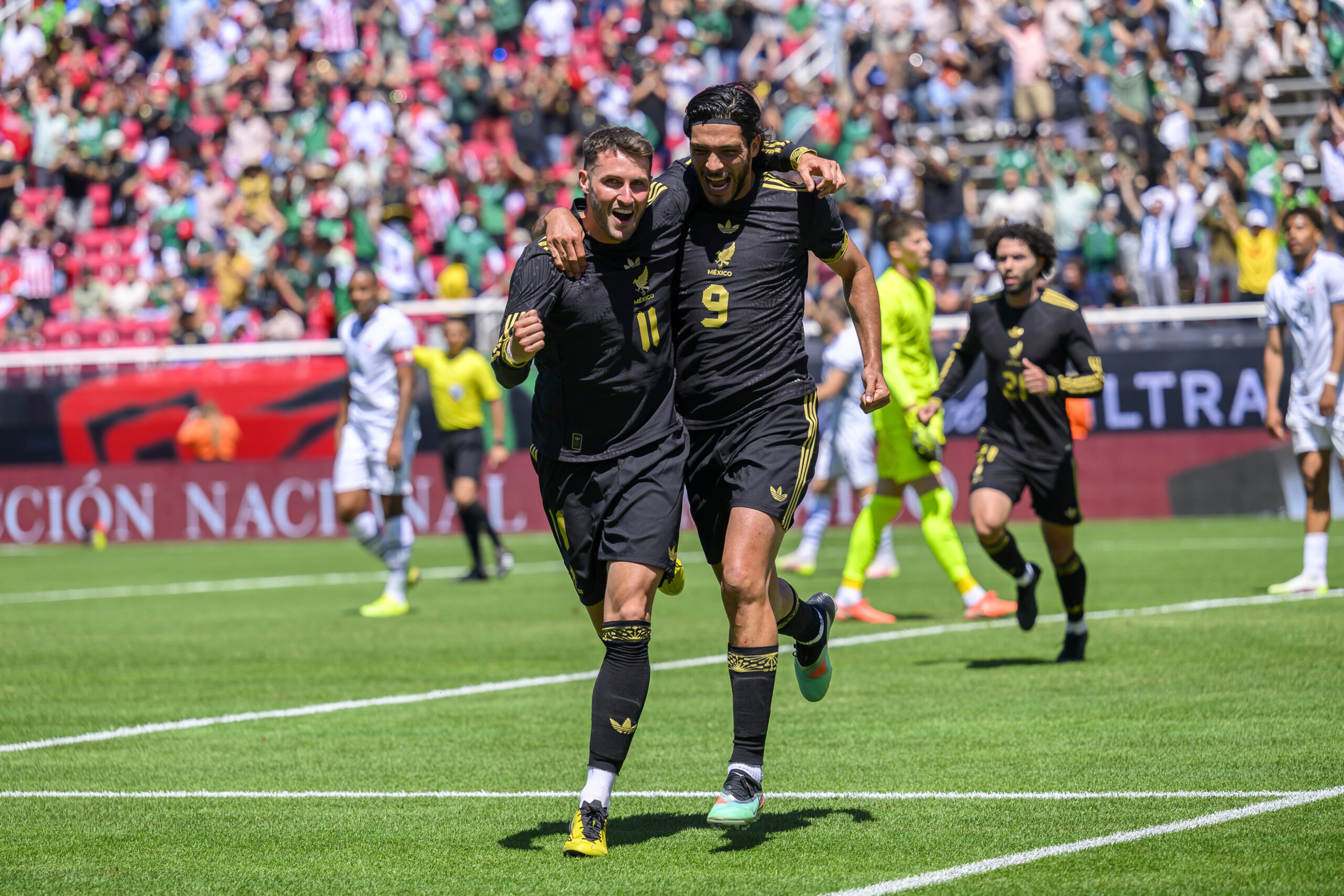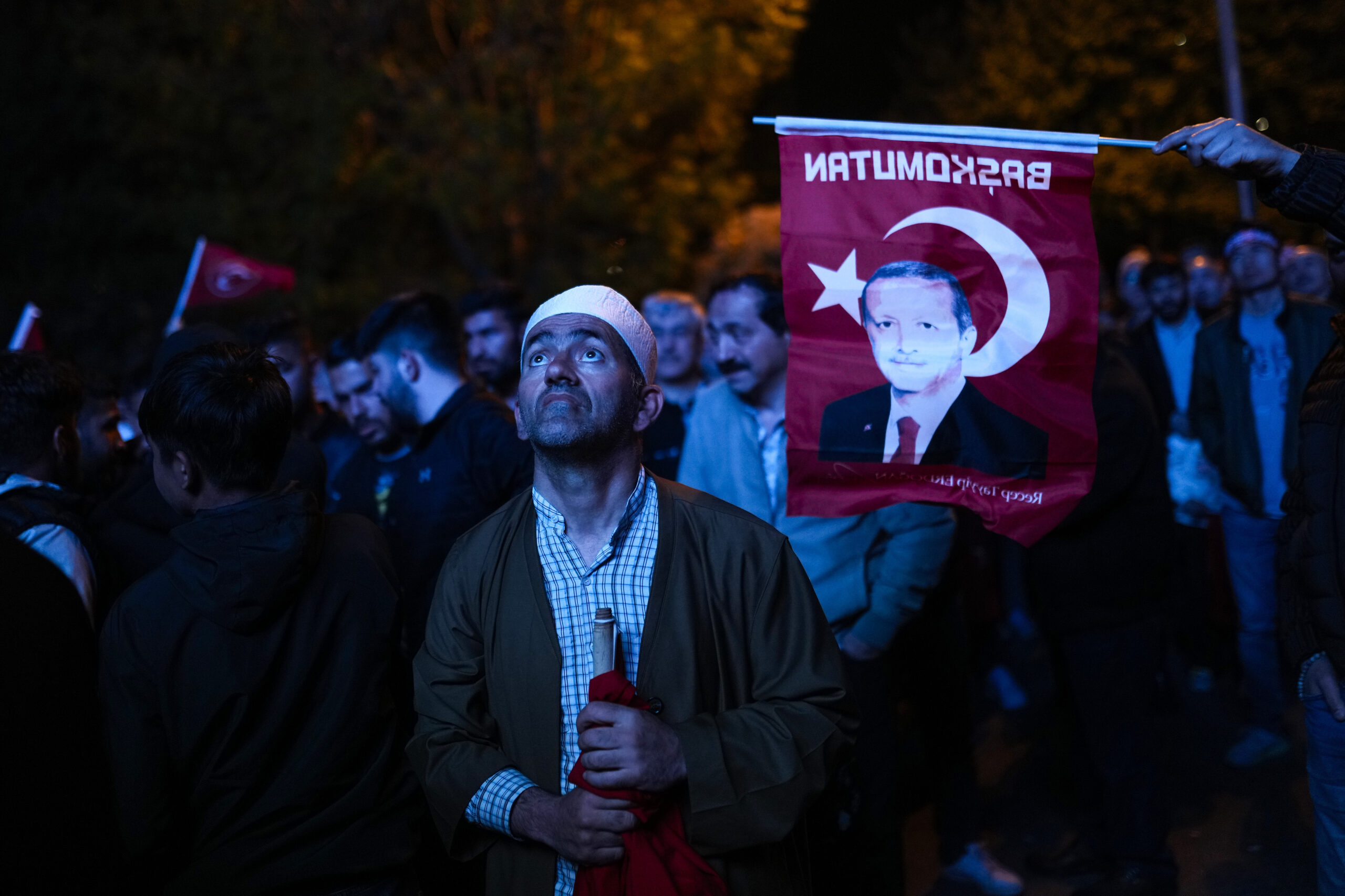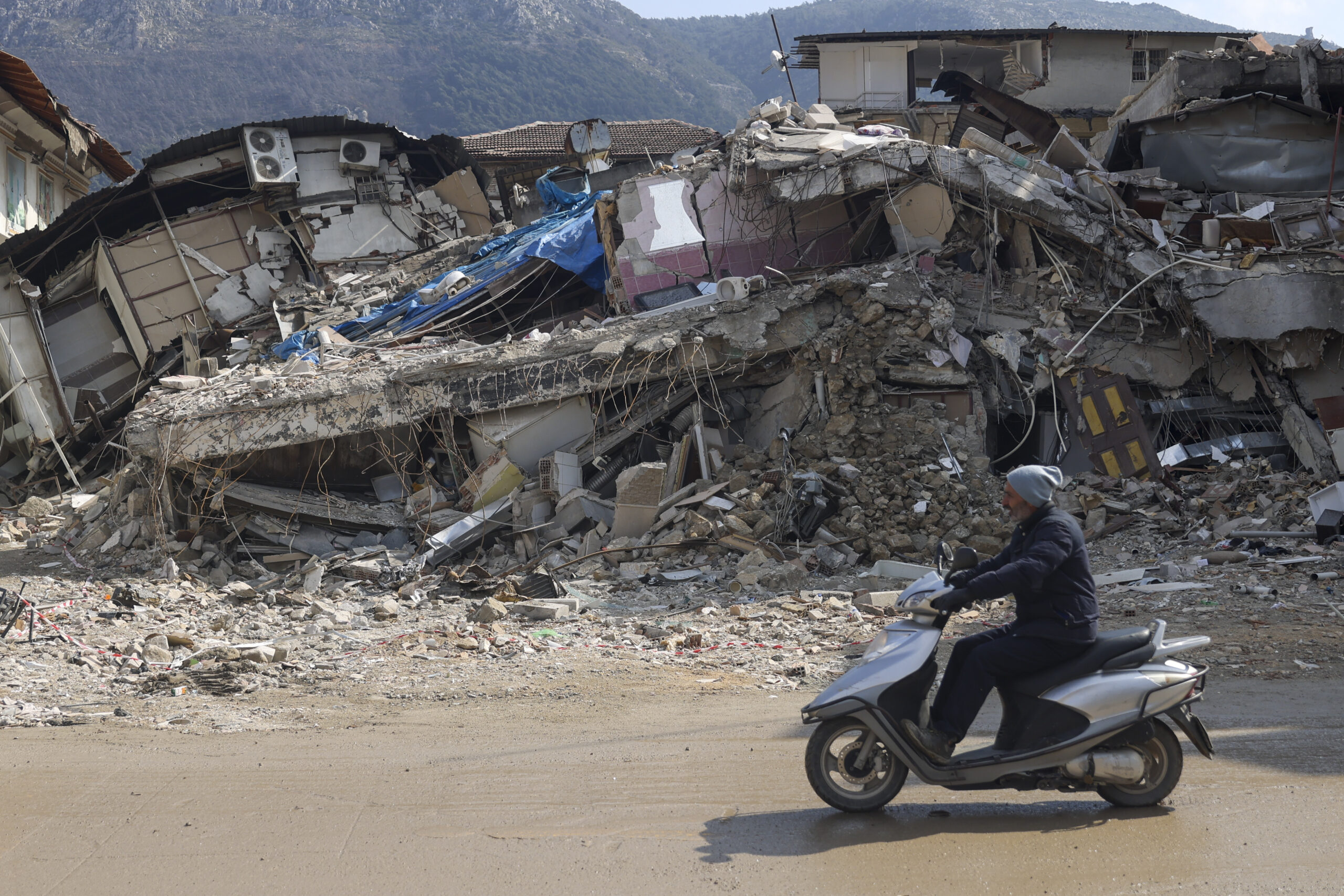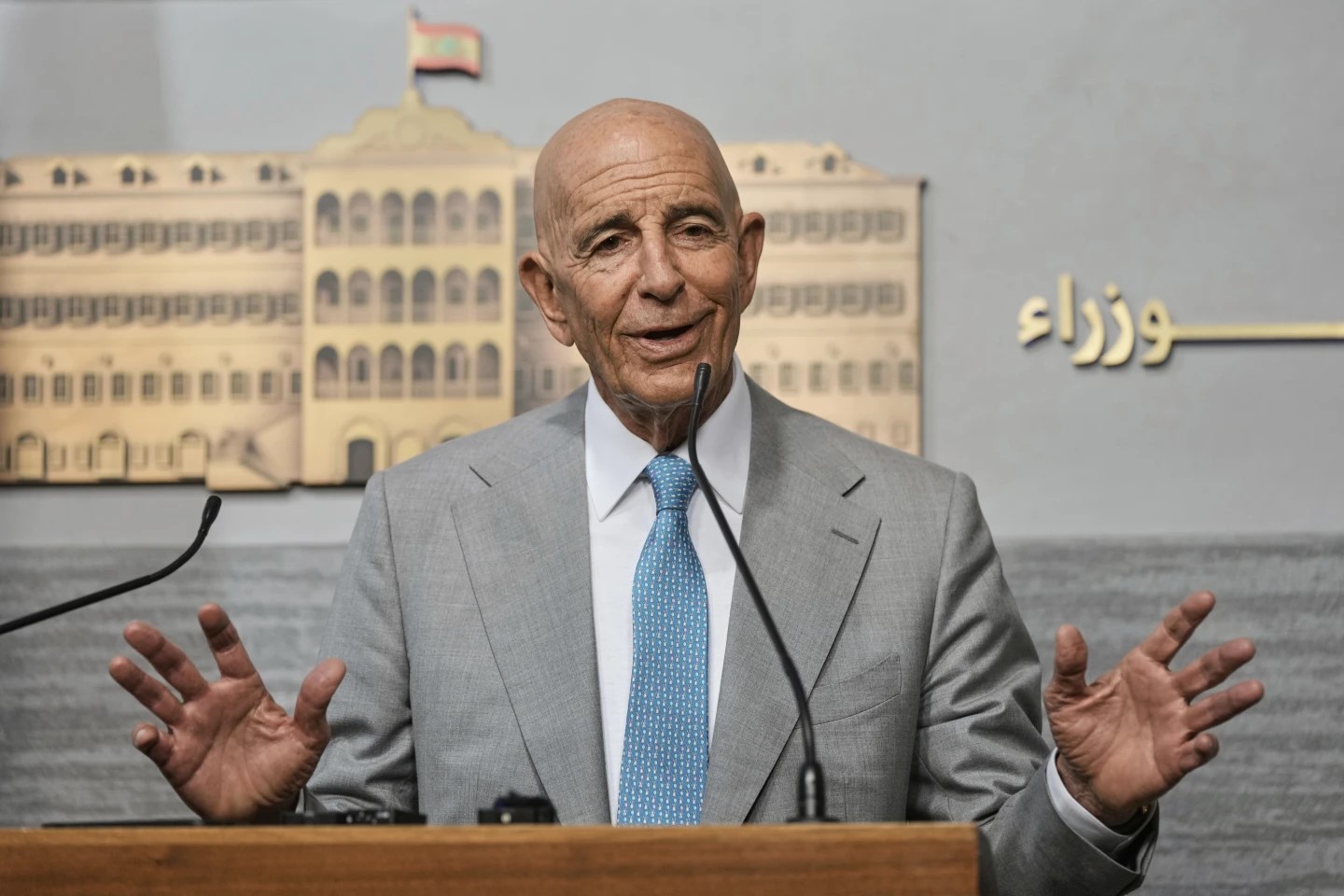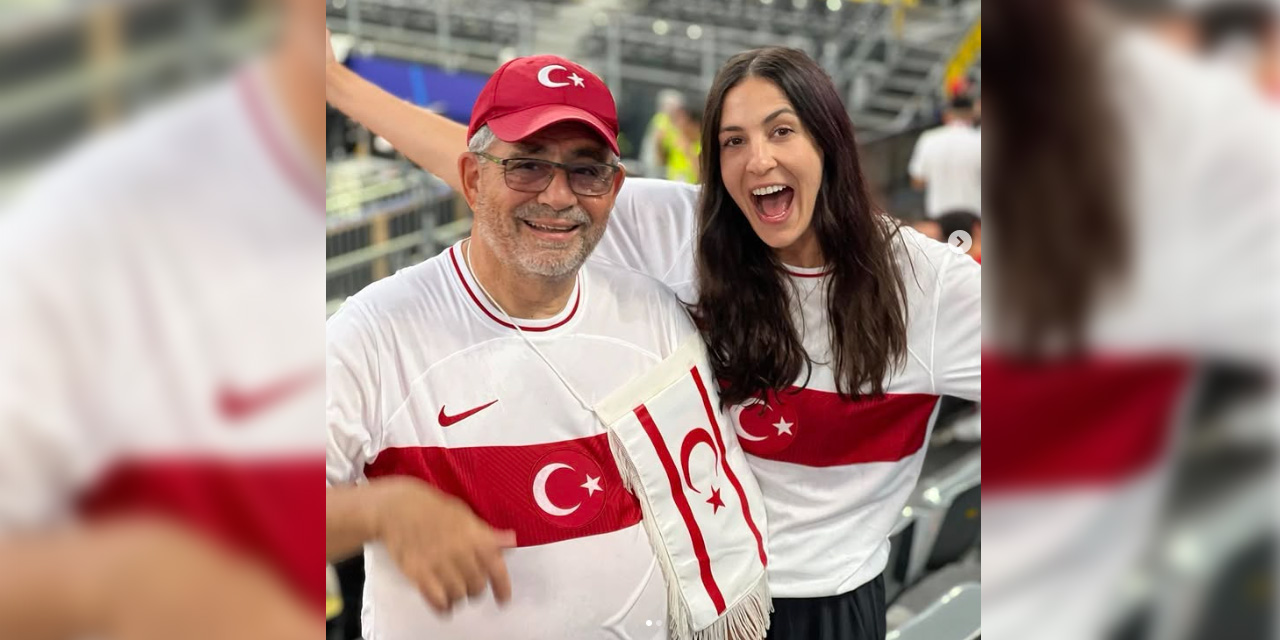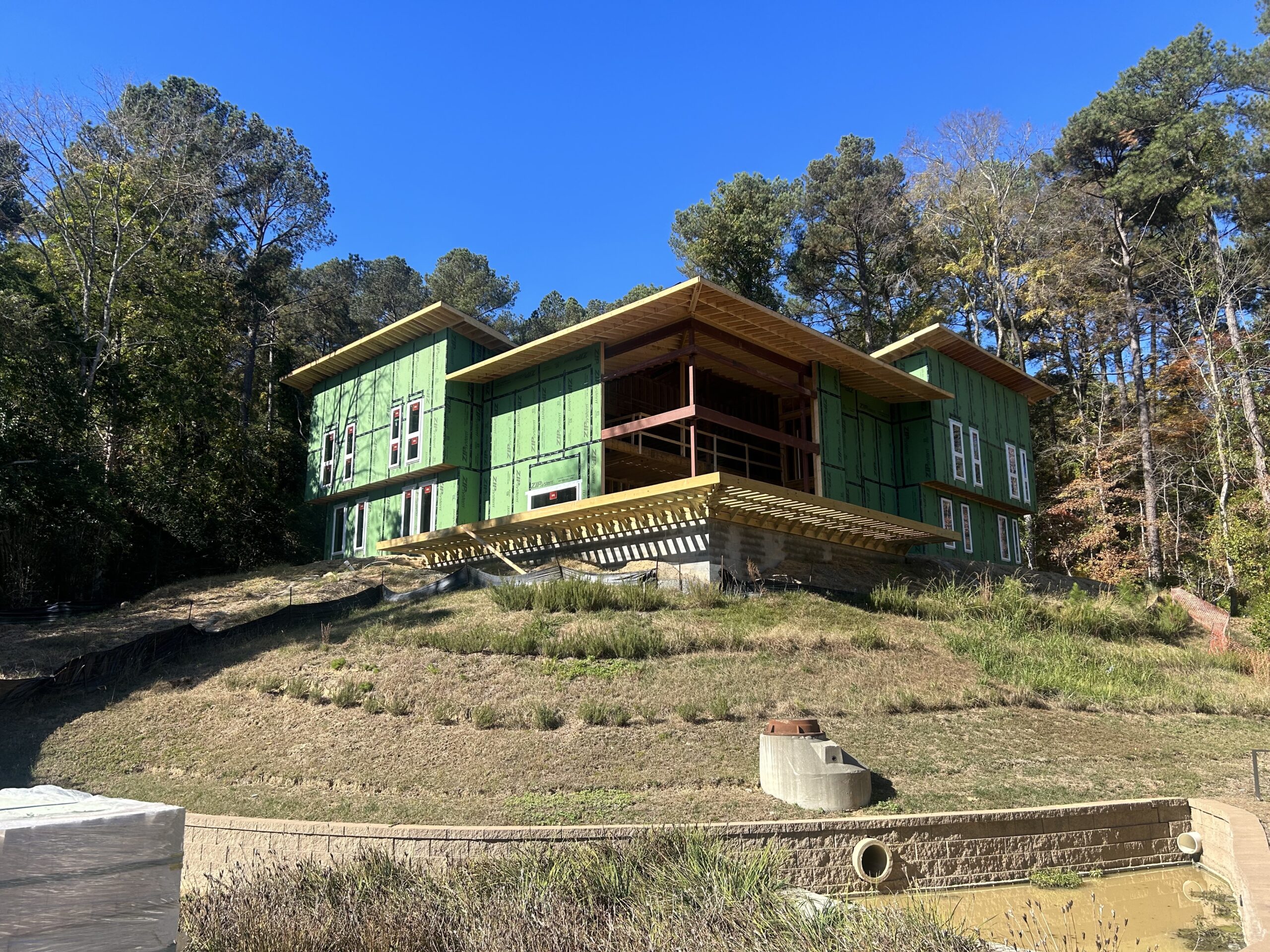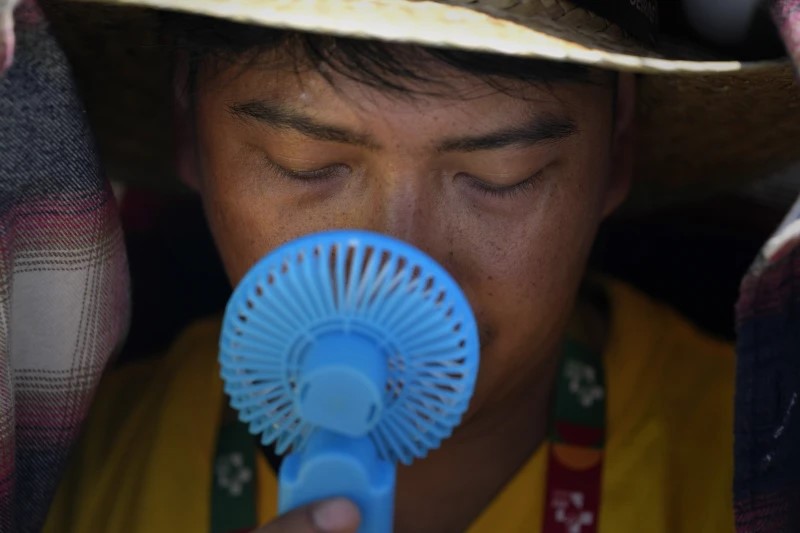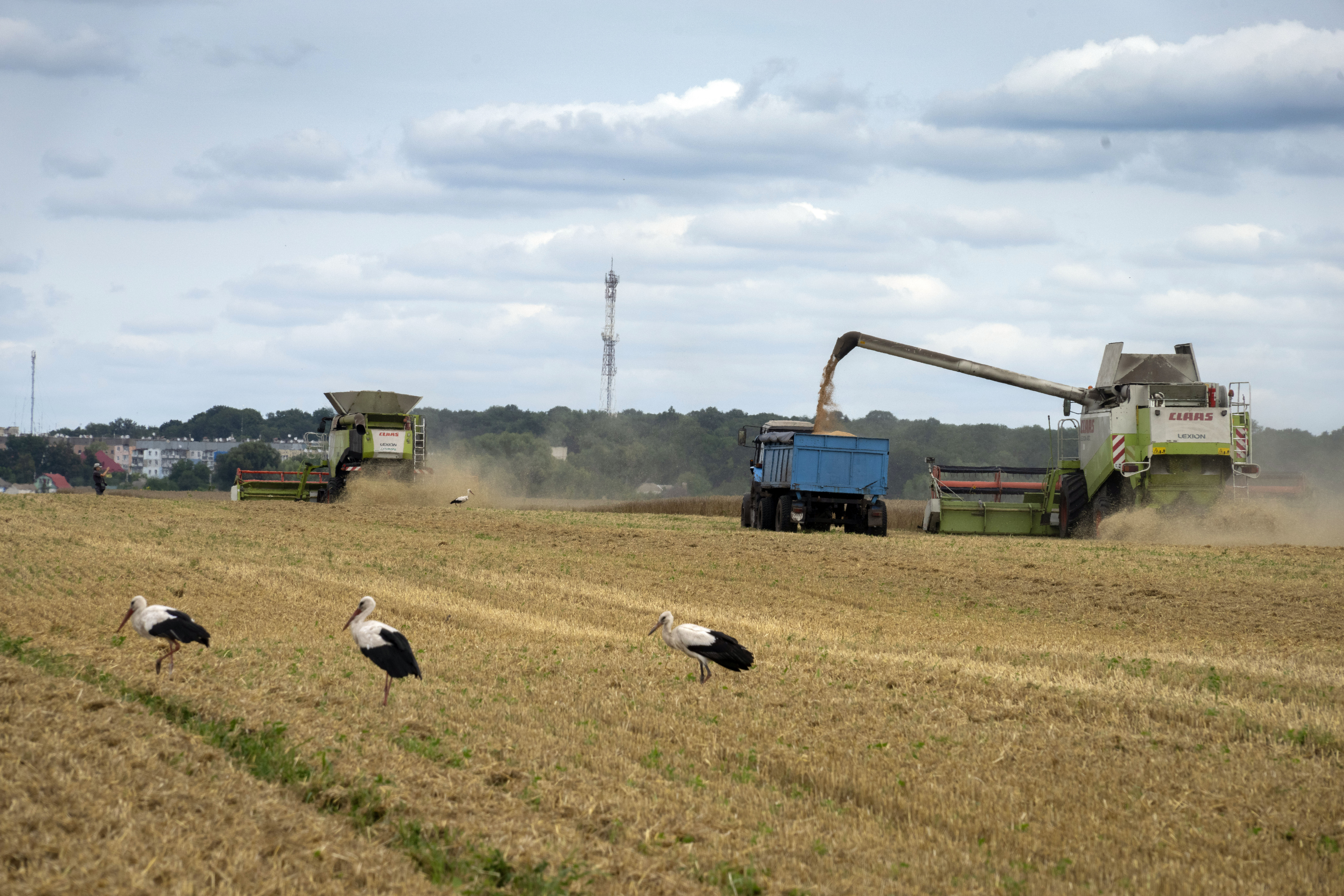Last Sunday afternoon, as some in our community were finalizing Super Bowl plans or finishing their weekends, others were gathered at the Sancar Turkish Cultural Center in Chapel Hill. Dozens of people milled around the Greathall room, sipping tea and nibbling on baklava. There were smiles and laughs as people greeted each other, but also long hugs and solemn conversations in both Turkish and English.
Sunday’s event served as an information session for those in the Triangle community who may not know the region of Türkiye and Syria affected by the pair of magnitude 7 earthquakes the morning of February 6. It also served as a chance for Turkish Americans or immigrants to the area to gather and be among those similarly concerned about the natural disaster.
As the death toll from the earthquakes continues to climb and the estimated amount of displaced people surpasses 2.4 million, many here in the United States have been finding ways to help. Locally, restaurants like Chapel Hill’s Mediterranean Deli have held benefits, while the Sancar Center itself is fundraising through its attached charity, Bridge to Türkiye.
Buket Aydemir with the North Carolina branch of the American Turkish Association said statewide, the response has been heartwarming. Since she heads up the group’s Earthquake Emergency Committee, she has been coordinating with many small businesses and local leaders – whose contributions have made a tangible difference.
“Store owners were giving us very useful [items], like hand-warmers or blankets for those [cold] conditions and we were able to ship them,” said Aydemir. “Whenever we mention this is for the earthquake victims, we get a response that’s overwhelming. It’s very humbling.”
To help drive the call for fundraising, several Triangle university faculty members spoke Sunday about the region. Archaeologists Kathryn Morgan of Duke and Kathryn Grossman of NC State spoke about their respective experiences in southeast Turkey and northwest Syria doing digs.
Afterward, Morgan said when she learned of the earthquakes, she and her family “cried for days.”
“First, we were crying because of the people that we lost and because we were so afraid of losing [more] people,” she said. “But I also have such vivid memories of the warmth, the generosity, the experience I had in this village. It’s hard to imagine going back and not having them.”
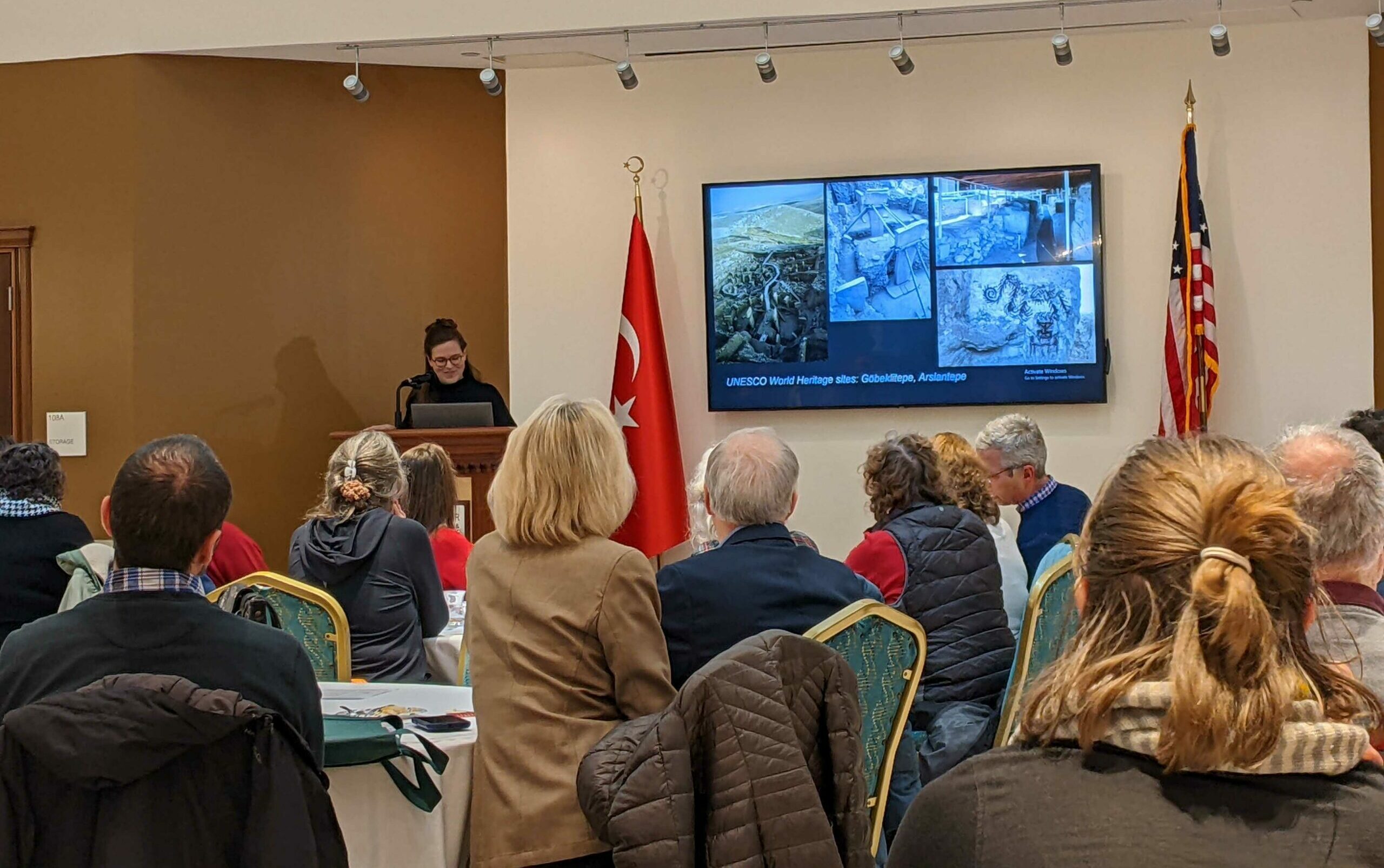
Kathryn Morgan, assistant professor of classical studies at Duke University, speaks to a crowd at the Sancar Turkish Cultural Center on Sunday, February 12.
Morgan shared stories with the crowd about the Turks she’s grown to know around the excavation site of Zincirli Höyük, where she began working in 2008. She then showed videos of their homes in rubble and the tents their families are now staying in. Morgan said while she has struggled to think about any other topics beyond the earthquakes, she hopes talks like Sunday’s might help inform others and bridge any cultural gaps.
“I guess what I wanted to show in my presentation and what I want people to understand: it’s a place that feels very far away, but that really isn’t very far away,” added the assistant professor. “These are people who take hospitality very seriously, who love their work, love their families, and love their communities. [That is] one of the things I’m really worried about protecting and that I think we here in Chapel Hill can really understand.”
Former U.S. Ambassador to Türkiye Robert Pearson also stressed that message during his comments. Now a fellow of Duke’s Rethinking Diplomacy Program, he recounted his time visiting the country after another massive earthquake in 1999. Pearson said he felt similarly then – as he does now – for the need of unity.
“Countries have their differences: they have different interests, they have different ideas, they have different motives for what they do,” said Pearson. “I’d like to suggest that today, we’re all Turks. Today, every one of us is Turkish.”
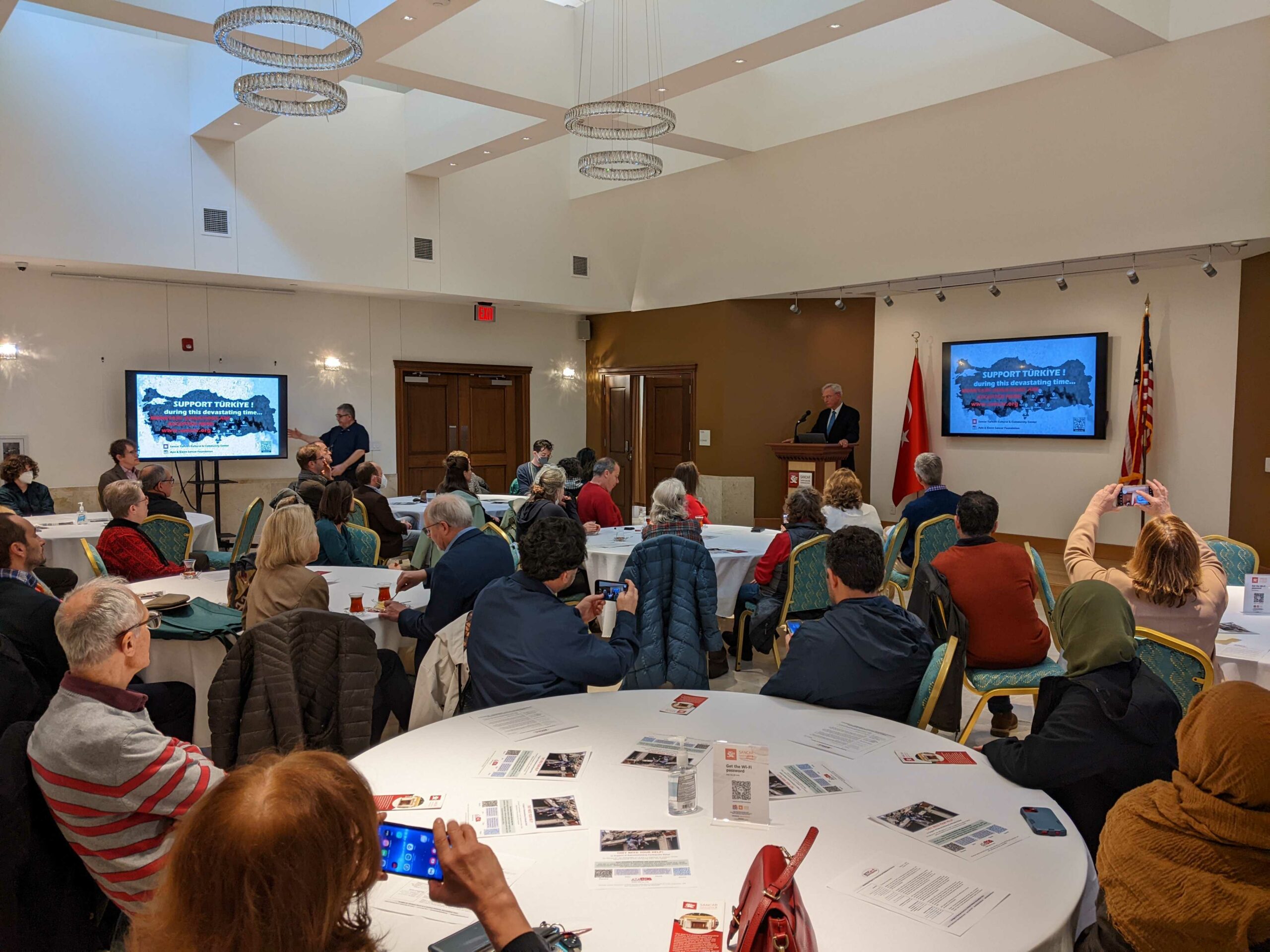
Robert Pearson opens discussions at the Sancar Turkish Cultural Center in Chapel Hill about the earthquakes in Türkiye and Syria.
While the fundraising is coming in steadily now, that likely will not be the case as the world moves farther away from the earthquakes’ initial blow. And according to the experts at Sunday’s meeting, the rebuilding effort could take years, if not generations of Turks.
Aydemir said it’s the next phases of support – both financial and metaphorical – that will likely be the most critical for Türkiye’s recovery.
“The second steps are [procuring] tents for the survivors [to live in],” she said. “Then, there are so many things. So many kids without families, education, healthcare. Now, we have hospitals reaching out to us needing medical equipment.
“Again, we have experience from the 1999 earthquake,” Aydemir added, “and it takes at least two years [to recover]. They may still be homeless afterward, but it takes two years to go back to normal [life].”
Chapelboro.com does not charge subscription fees, and you can directly support our efforts in local journalism here. Want more of what you see on Chapelboro? Let us bring free local news and community information to you by signing up for our biweekly newsletter.

